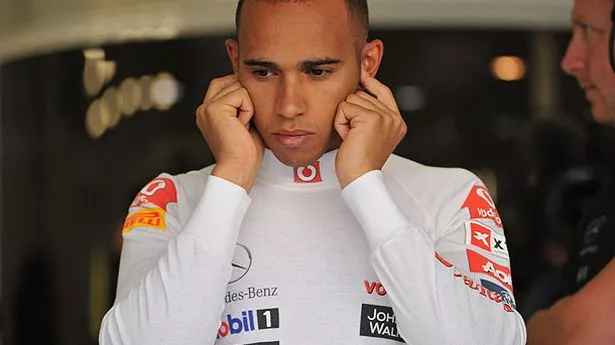Lewis Hamilton, one of the most successful Formula One drivers in history, has opened up about his long-standing battle with mental health issues. Reflecting on his life, the 39-year-old racer revealed that he has struggled with depression from an early age, particularly during his teenage years. Hamilton attributes much of his emotional turmoil to the pressures of motor racing and the bullying he experienced during his school years.
Hamilton, born in Stevenage, is renowned for his remarkable achievements on the racetrack. He holds a joint-record seven world titles, has won more Formula One races than anyone else (105), and boasts records for the most pole positions (104) and podium finishes (201). Despite these accolades, Hamilton admits that his personal journey has been far from smooth, describing his 20s as a time filled with “really difficult phases.” He shared these insights during an interview with The Sunday Times, where he spoke candidly about his mental health challenges throughout his life.
Hamilton revealed that his struggles with depression date back to when he was just 13 years old. He cited the intense pressure of competing in racing and his experiences of bullying at school as significant contributors to his mental health difficulties. “I had no one to talk to,” Hamilton said, emphasizing the sense of isolation he felt during those years. Despite the fame and success he achieved in Formula One, these early experiences left a lasting impact on his mental well-being.
The COVID-19 pandemic in 2020 marked a turning point for Hamilton. During this period, he embarked on a journey of self-discovery and introspection. Seeking ways to improve his mental and emotional health, Hamilton developed a new daily routine that involved waking up at 5 a.m. to meditate and then going for a run. This shift in his lifestyle helped him reconnect with himself and his inner emotions. He explained that although it was initially challenging to find inner peace, the routine ultimately proved beneficial in helping him understand and manage his feelings.
“I think it was a really great way of getting in touch with myself, my inner feelings, understanding what I can do,” Hamilton said of his morning routine. This period of reflection and self-care enabled him to confront and process many of the challenges he had faced earlier in life.
When asked if he had sought professional help for his mental health, Hamilton disclosed that he had spoken to a therapist years ago. However, he admitted that the experience was not particularly helpful and expressed a desire to find a therapist who could offer more effective support today. His candidness about his mental health struggles and his openness about the need for professional help reflect the broader conversation around mental health in elite sports, where athletes often face immense pressure both on and off the field.
Despite his personal challenges, Hamilton continues to make history in Formula One. Earlier this season, he became the oldest driver to win a race in the 21st century, further cementing his legacy in the sport. However, this year has not been as fruitful in terms of championship titles. With only six races remaining, Hamilton currently sits in sixth place in the standings, trailing the championship leader, Max Verstappen, by 157 points. With only 150 points left to win, it is mathematically impossible for Hamilton to claim another title this season.
Looking ahead, Hamilton is set to make a major career move at the end of the season. After 12 years with Mercedes, he will join Ferrari in what is expected to be a significant shift in his racing career. This move signals the end of an era with Mercedes, a partnership that has brought him immense success but also marks the beginning of a new chapter as he continues to navigate both his professional and personal journey.
In sharing his struggles with mental health, Hamilton has offered a glimpse into the often-hidden emotional challenges faced by elite athletes. His story serves as a reminder that even the most accomplished individuals are not immune to the pressures of life and that seeking help and finding balance is crucial for overall well-being.







